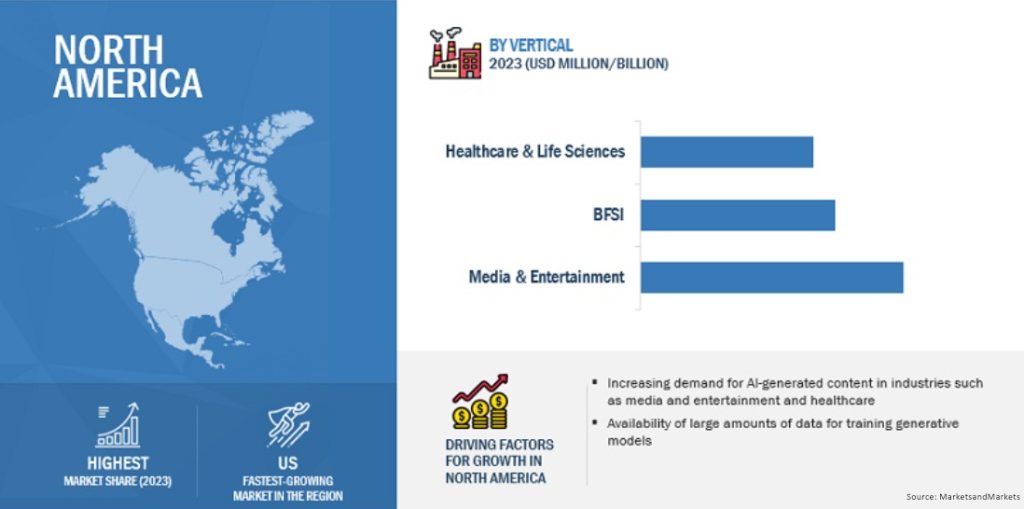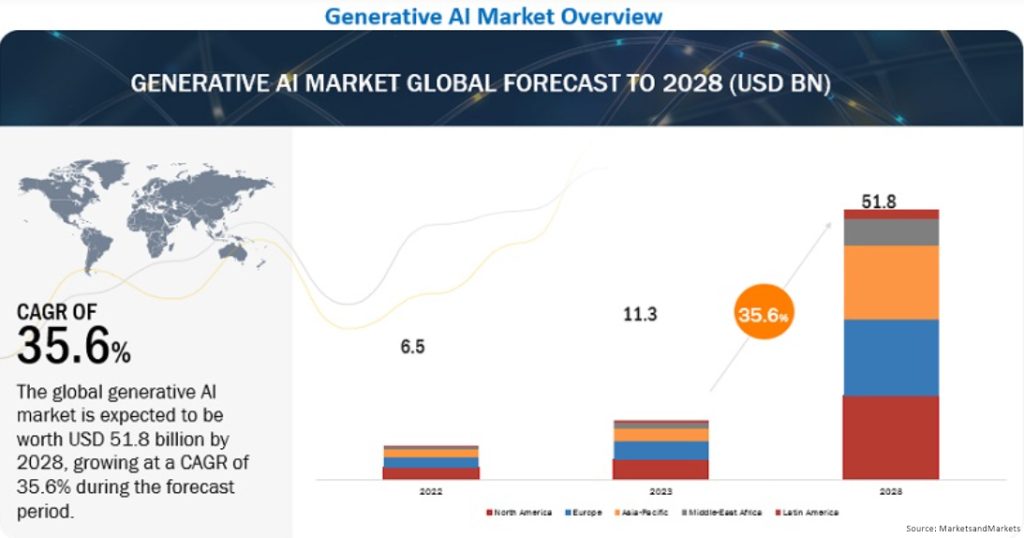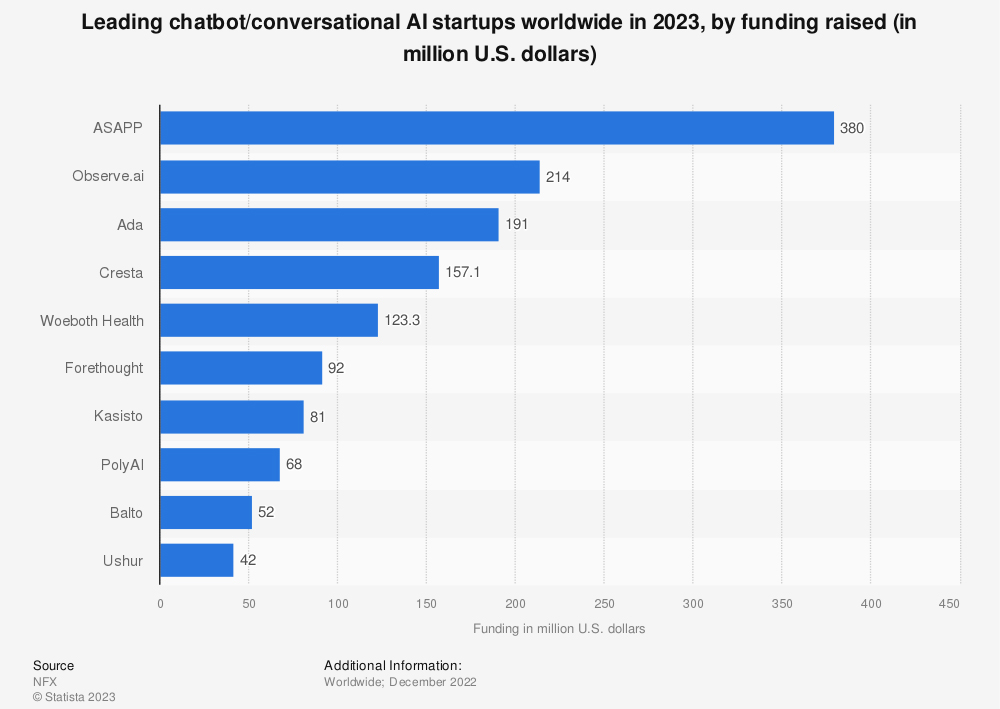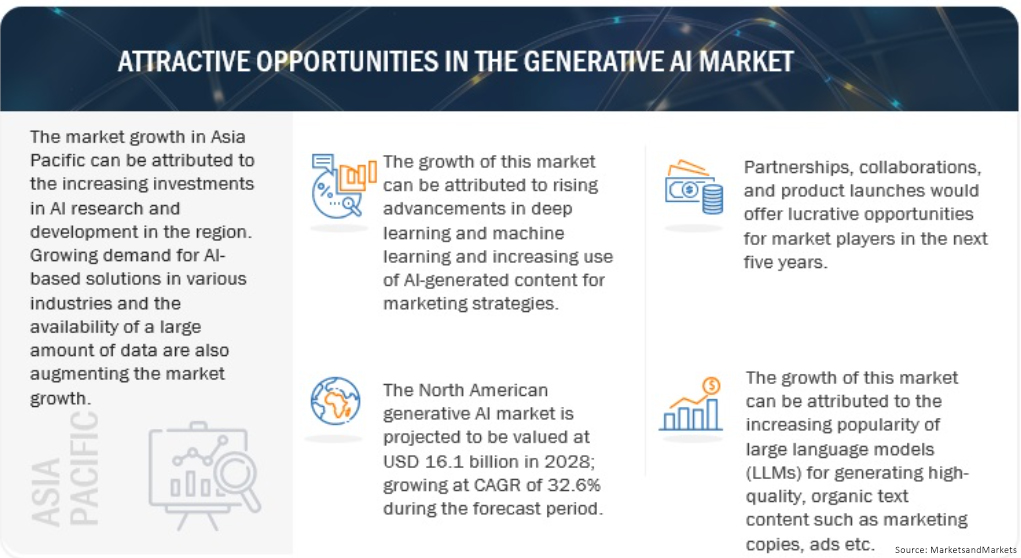Generative AI is disrupting industries, but experts warn companies not to throw caution to the wind.
ChatGPT is an innovative technology that has taken the world by storm. It is an AI (artificial intelligence)-based chatbot that can understand human language and respond in a way that feels natural. ChatGPT has been used in various industries, including healthcare, finance, customer service, and more, and it has been gaining popularity as a powerful tool for automation and cost reduction.
However, as with any disruptive technology, there are concerns about its impact on the job market, privacy, and security. ChatGPT has the potential to replace human jobs, especially those that involve repetitive tasks and simple decisionmaking. This could have far-reaching implications for the labor market and the economy.
Some experts believe ChatGPT has the potential to be the biggest disruptive technology of the century, and with the good almost always comes some bad. So, which industries will be disrupted most? Journalism, perhaps? (In the name of research, ChatGPT wrote the first two paragraphs of this article after being asked to provide a 100-word intro to an article that will investigate whether ChatGPT is a disruptive technology. How did it do?)
Experts repeatedly point to industries like customer service, healthcare, finance, media/journalism, and education as areas bound to be most affected by this technology. Many see generative AI as a huge opportunity for good. Many others can’t overlook all the opportunities for misuse.

ChatGPT offers a mixed-bag of pluses and minuses, depending on whom you ask, but one clear benefit is the fact it has forced natural language processing and conversations around ethical AI into the mainstream—and that is a conversation society simply must have, the sooner the better.
Generative AI Shifts into Mainstream Consciousness
ChatGPT is an AI model trained by OpenAI, a startup funded by Microsoft. The latest iteration of the model, ChatGPT-4, is OpenAI’s most advanced yet. OpenAI says it can “generate, edit, and iterate with users on creative and technical writing tasks, such as composing songs, writing screenplays, or learning a user’s writing style.” ChatGPT is a popular generative-AI tool that relies on a very large amount of training data.
McKinsey says generative AI describes algorithms like ChatGPT that can be used to create new content, ranging from text to video, audio, images, and code. ChatGPT itself says: “Generative AI refers to a class of AI algorithms that have the ability to generate new and original content, such as images, text, and audio, without being explicitly programmed to do so. Generative AI systems use machine-learning models that are trained on large datasets to learn patterns and generate new content based on the learned patterns. The generated content is not simply a replication of existing data, but rather a unique creation that has not been seen before.” Whether or not ChatGPT’s creations are truly “unique creations” is up for interpretation.
What’s not up for interpretation, though, is ChatGPT’s effect on the generative-AI market. Statista says it took just five days for ChatGPT to reach a million users after it launched last November. According to MarketsandMarkets, generative AI’s market value will increase from $11.3 billion in 2023 to $51.8 billion by 2028.

Brian Sathianathan, CTO and cofounder at Iterate.ai, says as a language model, ChatGPT is a game changer in the world of AI. “What sets it apart from other language models is its ability to generate human-like responses and understand the context of a conversation,” he says. “It feels more like a human interaction rather than a machine-generated response.”
Chris Mattmann, author, chief technology and innovation officer at NASA JPL (Jet Propulsion Laboratory), and adjunct research professor at USC, says ChatGPT has the potential to be the biggest disruptive technology of the century. “It’s a watershed moment in technology,” Mattmann says. “With Chat-GPT4 and the ability to handle not just text but (also) multi-modal data—audio, image, video, text—and to reason about it like a human and answer problems and questions using as good or better than human precision, from my vantage point it is the single greatest potential technology for benefit of humankind, while at the same time has the potential to be the single greatest threat.”
Ashique KhudaBukhsh, assistant professor in the Software Engineering Dept. at Rochester Institute of Technology, also says he sees ChatGPT as disruptive but in a good way. He describes overhearing three men in their late sixties discussing ChatGPT in a coffee shop in Kolkata. “None of them seemed to come from a computer-science background, yet their interest and enthusiasm about it were palpable,” KhudaBukhsh says. “In every conference I visited since ChatGPT happened, almost all hallway conversations eventually veered into discussing ChatGPT, its enormous potential and possible harms. Good or bad, from Noam Chomsky to my research colleagues to those three strangers at that coffee shop, ChatGPT has made natural language processing mainstream in an unprecedented way.”
Disrupting Industries
Jonathan Shroyer, chief CX (customer experience) innovation officer at Arise Virtual Solutions, says ChatGPT has the capacity to revolutionize several industries by automating mundane and repetitive tasks while providing human-like quality interactions. However, he says it can’t and won’t replace humans. “(ChatGPT) is a powerful language model and can understand and generate human-like text at rates humans cannot match, making it a valuable asset for a wide variety of applications and uses, especially for content creation,” Shroyer explains. “However, as it exists now, it is not a replacement for human work and needs to be prompted in certain ways to be optimally leveraged.”

One industry ripe for disruption by ChatGPT is customer service. “In the customer service industry, ChatGPT has the potential to significantly reshape it,” Shroyer says. “Companies can employ AI-driven chatbots to reduce their reliance on human agents, which can lead to cost savings and improve efficiency, from a company’s perspective. However, this may also lead to job displacement for customer-service representatives and potential privacy concerns as AI systems handle sensitive customer information.”
Similarly, NASA JPL’s Mattmann says ChatGPT will transform the call center industry. “Imagine call center agents, where instead of the agent, we have ChatGPT listening to a call, processing the user request, and then deciding how best to answer or service the request,” he says. “That’s sort of what a call center agent does, and using ChatGPT there will significantly advance that industry.”
As to humans’ new role in customer service, Mattmann says he predicts agents would move into coaching and screening. Essentially, he says AI would be reducing call times and referring people to the right help and services, and humans would need to reskill to other areas.
Healthcare is another industry ChatGPT will disrupt. David Liebovitz, MD, codirector of the Institute for Augmented Intelligence in Medicine—Center for Medical Education in Data Science and Digital Health, associate vice chair for clinical informatics, Dept. of Medicine, and associate professor of medicine (general internal medicine) and preventive medicine (health and biomedical informatics) at Northwestern University, says he’s tremendously excited by the potential.
“Large language models like ChatGPT will likely affect healthcare in many respects,” Liebovitz says. “For example, pilot efforts are already underway using ChatGPT-proposed responses to patient questions submitted by patient portals to their providers. Preliminary research suggests improved responses geared toward patients than typical physician responses. Broadly, this category would cover anticipating needed text by clinicians and would extend to any documentation provided by physicians. As privacy-preserving approaches are refined, this may extend to other areas, such as identifying actionable states in individual records or across a population of patients. For example, identifying loose ends, such as results in need of further testing. Prior approaches required explicit rule creation and searches.”
Liebovitz also says at the point of care, typical next steps in care can be teed up to enhance physician efficiency and effectiveness with much greater precision than prior efforts have yielded. “The potential […] will be to improve patient/clinician interactions, improve patient engagement in their health—e.g., via access to an LLM (large language model) that ‘knows’ all details of their history, enhance clinician efficiency/effectiveness, and improve patient safety and overall quality of care.”

Iterate.ai’s Sathianathan says finance is another industry that stands to gain from the integration of ChatGPT. “With automated financial services, such as financial planning and investment advice, financial institutions can provide more efficient and cost-effective services to their customers,” he explains. “With ChatGPT, financial institutions can offer personalized advice and tailored financial plans, which can help clients make better financial decisions. This technology can also streamline the process of reviewing investments, reducing wait times, and making financial services more accessible to everyone.”
In the media and journalism industry, ChatGPT can help improve the speed and accuracy of news reporting. “By generating news articles and summaries automatically, journalists can focus on more in-depth reporting and analysis,” Sathianathan adds. “This can also make news more accessible to people who speak different languages, which is a great benefit for diverse communities. However, there’s a concern that this could lead to fewer jobs for human journalists, which is something to be aware of.”
In general, there’s concern about job displacement across all industries that leverage ChatGPT. Sathianathan says while this concern is valid, it’s important to remember the technology can also create new job opportunities. New roles will emerge that require a different skillset than the ones ChatGPT is replacing. This could include data analysis and programming, as well as the ability to focus on more complex tasks and strategic decisionmaking.
ChatGPT Hurdles in Academia and Beyond
Rochester Institute of Technology’s KhudaBukhsh says he’s most worried about how ChatGPT will affect education. “Writing an essay is not a mere exercise to learn how to write better, it is rather a process to hone how to think better,” he says. “Similarly, writing a piece of complex code is again a culmination of understanding how different components of a program interact in unison to convert the input into desired output. Getting quick answers using simple prompts could seriously hamper students’ learning and creative thinking, curbing their desire to challenge themselves and grow.”
While Deb Donig, assistant professor of English Literature at Cal Poly, SLO, agrees ChatGPT is a disruptive technology because of its potential impact on the market, she’s not one to put the tech up on a pedestal. “ChatGPT will be an incredibly disruptive technology; there are many markets in which it will intervene, (and) it’s a very potent business tool,” she says. “(But) I don’t think it is, for example, a great teacher of writing. ChatGPT isn’t going to tell somebody how to compose writing well.”
Donig says she foresees changes in education thanks to ChatGPT. “This is not ChatGPT taking over educators’ jobs, but it’s people really asking, ‘What is the value, the market value, of writing?’ And (then) being reluctant to train themselves in those areas because there are no jobs related to it. And if you cut off that kind of pipeline, then I think we’re going to see really drastic changes.”
Donig says some students will use whatever technologies are available to them to create labor shortcuts when completing an assignment, and ChatGPT is another tool in these students’ toolboxes. “People in the humanities are, I think, rightly worried about some level of the inability to distinguish between composition by people and composition by machines, how that affects how we grade and how we assign work, and how we evaluate,” she explains. “I think that if the humanities are paying attention, they might also be concerned about the way ChatGPT may change the perception or the economic reality of the value of writing.”
She also takes issue with the creators’ intent behind ChatGPT. “I don’t think we can assume that technology is neutral,” she says. “Every single technology has a vision and an intent built into it. Take for example, a gun, right? […] Nobody is using this gun to go heal cancer. Nobody’s using a gun to make somebody better. The purpose of a gun is to enact violence and cause destruction to whatever the gun is aimed at. That’s not neutral. There’s an intention built into that gun. That’s the case with any technology.”
4 Pros and 4 Cons of ChatGPT
Chris Mattmann of NASA JPL (Jet Propulsion Laboratory) and USC lists four pros and four cons of ChatGPT.
Pros
- Generates new ideas for writers and creators.
- Creates a universal “chatbot” that can assist humans in a variety of tasks using multimodal data.
- Gets people to the right services fast.
- Summarizes long text.
Cons
- Replaces people with AI.
- Raises ethical concerns about data being put into the prompts (e.g., generating employee reviews).
- Raises privacy concerns (how are companies using the data?).
- Raises questions about where companies get the original data (seems like more than just the Internet).
ChatGPT too has a vision built into it, and is that vision to improve society? “The vision is how can we create text-based communication that forgoes the need for composition combined with indexing and search,” Donig explains. “That’s what ChatGPT does. ChatGPT was never aimed to make new ideas; ChatGPT was never aimed at creating better ideas. It was aimed at collecting and indexing data and then providing expedient ways to access that data in a legible compositional form.”
The fact that academics and industry professionals are talking about things like intent, ideal use, and potential for misuse, though, is a very good thing. KhudaBukhsh says ChatGPT is forcing conversations about ethical AI and how generative AI will affect education, jobs, and society as a whole. “ChatGPT responses made us all realize that all the potential harms we the responsible AI researchers were foreseeing are finally real, requiring immediate actionable guardrails,” he explains. “The imaginary threats of NLP (natural language processing) wreaking havoc and generating misinformation at scale is no longer a hypothetical shadow-boxing scenario for responsible AI research. ChatGPT has thus forced responsible AI conversation into mainstream AI discourse.”
For those who use it as a helpful tool, ChatGPT will make life and business more efficient, but users shouldn’t stop thinking critically about how they’re using the technology. “While ChatGPT can be a powerful tool, overreliance on it can have negative consequences,” warns Sathianathan. “If we become too reliant on ChatGPT, we may stop thinking critically about the information it provides, leading to errors or even disastrous outcomes if the ChatGPT model fails or provides inaccurate results. However, it’s essential to recognize that ChatGPT is a tool to assist us, not replace our own cognitive abilities. By using ChatGPT as a complementary tool to our own critical thinking and decisionmaking skills, we can achieve better results and unlock the full potential of ChatGPT.”
No technological development or invention is without consequences, and experts encourage users to maintain cautious optimism about the benefits while also being aware of the potential consequences. “ChatGPT is a great tool, (but) it is not a replacement for human workers, especially at this point in time,” concludes Arise Virtual Solutions’ Shroyer. “Companies should know and be aware of the advancements in the AI industry but should not throw caution to the wind when deploying it in their business strategy. It needs to be used ethically and responsibly in order for the full benefits to be maximized. A balanced approach that is backed by research and responsibility is essential to running any AI program efficiently, and that cannot be done without human workers to oversee and work with the tech itself.”
Links for Further Learning:
- McKinsey’s What Is Generative AI?
- NVIDIA’s What Is Generative AI
- Experimental Evidence on the Productivity Effects of Generative Artificial Intelligence
Want to tweet about this article? Use hashtags #IoT #sustainability #AI #5G #cloud #edge #digitaltransformation #machinelearning #futureofwork #ChatGPT #generativeAI #machinelearning #IterateAI #AriseVirtualSolutions #OpenAI #education #customerservice #media #journalism #finance #healthcare #chatbots


